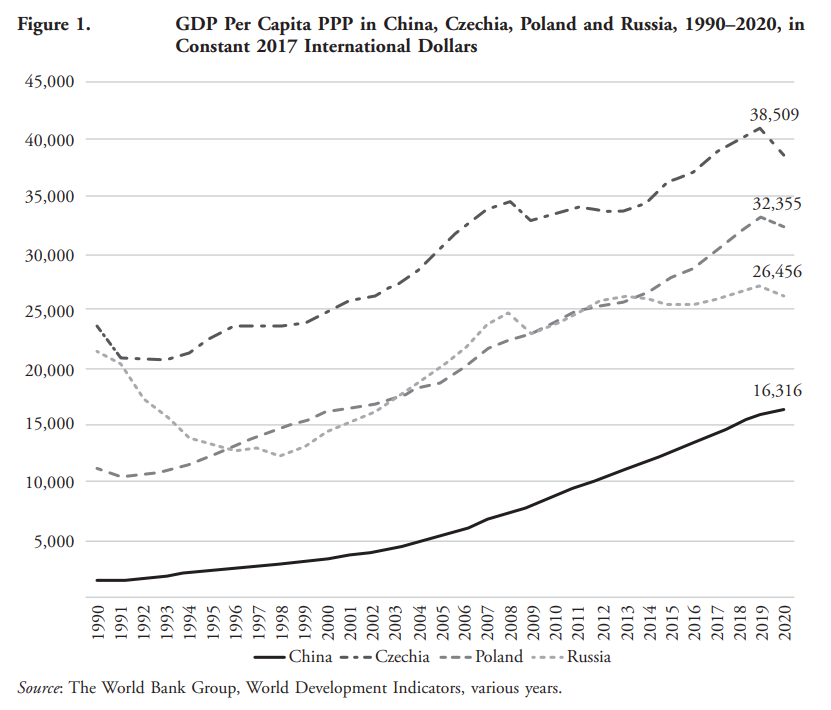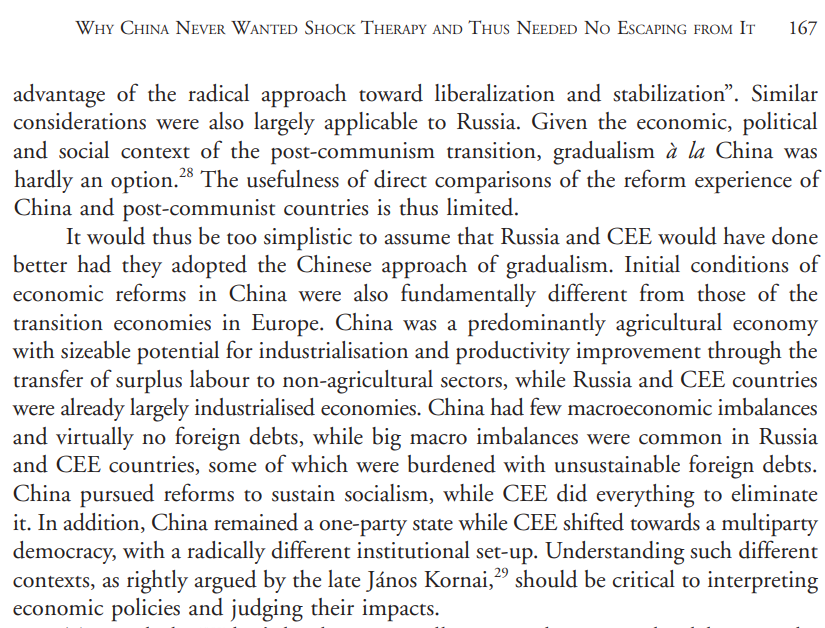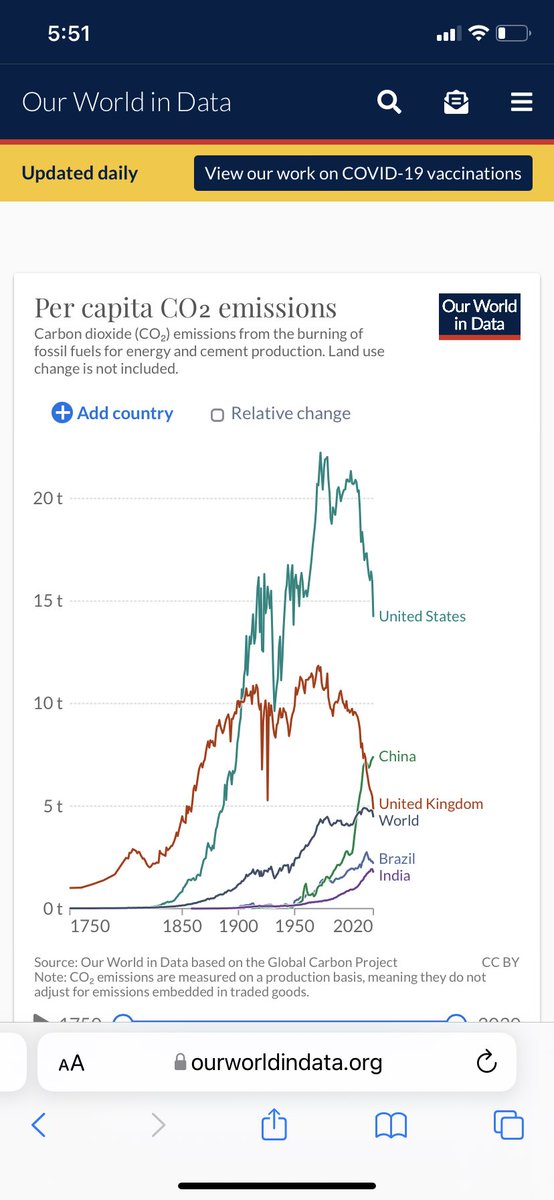
“Why China Never Wanted Shock Therapy and Thus Needed No Escaping from It?" @clz030857 and mine review of @IsabellaMWeber ' bestseller on “How China Escaped Shock Therapy”. The whole review muse.jhu.edu/article/848484 is here. Some key highlights below🧵1/n
2. We argue that @IsabellaMWeber book is brilliant in how it analyses the rich intellectual debates in the 1980s in #China that, in the author's view, prevented it from embracing “shock therapy”, helped avoid econ. disaster and laid the foundation for its meteoric economic rise
3. Yet, while we really like the book, we take issue with the author's key arg., i.e. that China “escaped shock therapy” b/c “good” reformers, who learned from the policy mistakes of other comm. countries, won a “battle" against "bad" shock-therapy reformers. Four counterarg.👇
4. First, China has almost always followed a gradual approach to reforms more akin to “acupuncture” rather than a “shock” therapy. Specifically, there was not much "shock" in the proposed price reforms in 1986 and 1988 that the book focuses on
5. Both price reforms aimed at introducing only a gradual change to not to "rock the boat"/undermine social stability. There was nothing that alluded to “shock therapy” in these abandoned reform plans. "Shock" reformers also never recommended such shock therapy in the first place
6. Eg, even the more ambitious first draft of the 1986 reform plan proposed that selected "prices of energy and raw materials should undergo relatively large adjustments", but "the degree of adjustment should vary across specific products”. This hardly qualifies as a “big bang”.
7. Second, the author's definition of shock therapy is deceptive, b/c it meant diff. things in CEE/RUS/CN. Shock therapy can't be defined only by 'big bang' price liberalization (not the case of CN anyway), as other inst./market/trade reforms were at least equally important
8. Eg, comparing #Poland 's 1989-90 “shock therapy” with China’s reforms👉the two have little in common. #Poland had a wholesale change of the econ system incl. a “big bang” price reform for almost all prices, lifting of capital controls, tearing down of trade monopolies etc.👇 

9. Against such background, China’s approach could at best be called “acupuncture therapy”, as it was focused on concentrated, gradual and limited reforms in narrow areas, not a wholesale removal of the old economic system virtually overnight as in CEE
10. Third, CN has not been close to any shock therapy not b/c the "good" reformers” “saved” China, but b/c the pace and scope of market-oriented reforms were constrained by CPC’s skepticism towards market-based solutions, empirical approach to reforms&prioritization of stability
11. Eg, social stability was at a big premium b/c of the disastrous decade of the “Cultural Revolution”, which ended with a national consensus that nothing can be accomplished without social peace. This did not leave much space for radical solutions, let alone a shock therapy
12. Hence, the book's claim that the victory of “good" reformers set “the basic model of gradual marketization”&helped “escape shock therapy” is shaky. CN’s ideology in the 1980s was to shock therapy what Sanders’ ideology is to Trumpism today. Econ. debates cld hardly change it
13. Finally, the book’s juxtaposition of CN’s econ. success with RUS "shock therapy" failure is powerful, but it conveniently ignores the much diff. experience of CEE, which, at least initially, embraced shock therapy, but had nonetheless achieved a remarkable economic success
14. Eg, #Poland , which arguably experienced the most intense shock therapy, has tripled its GDP pc PPP since 1989. GDP pc in #Czechia, another “shock therapist”, has almost caught with the West. Meanwhile CN's income pc was still only at <=1/2 of both. 

15. @IsabellaMWeber 's implicit assumption that had Russia/CEE adopted the Chinese approach of gradualism, it would have done much better is also hard to justify, incl. b/c of fund. different initial conditions in CEE&CN👇 There is a limit to what both can learn from each other 

16. To conclude, @IsabellaMWeber ' book is an excellent contribution to the debate on the intellectual sources of China’s policymaking/econ. success. Big kudos to the author! However, the book should be read with several imp. caveats in mind and not be misled by the title🙂 END
@BrankoMilan @paulkrugman @ojblanchard1 @JosephEStiglitz @adam_tooze @berthofmanecon @sguriev @Noahpinion @StephanieKelton @BJMbraun @gerardrolanducb @michaelxpettis @davidrdollar @ChorzempaMartin @MESandbu
• • •
Missing some Tweet in this thread? You can try to
force a refresh






